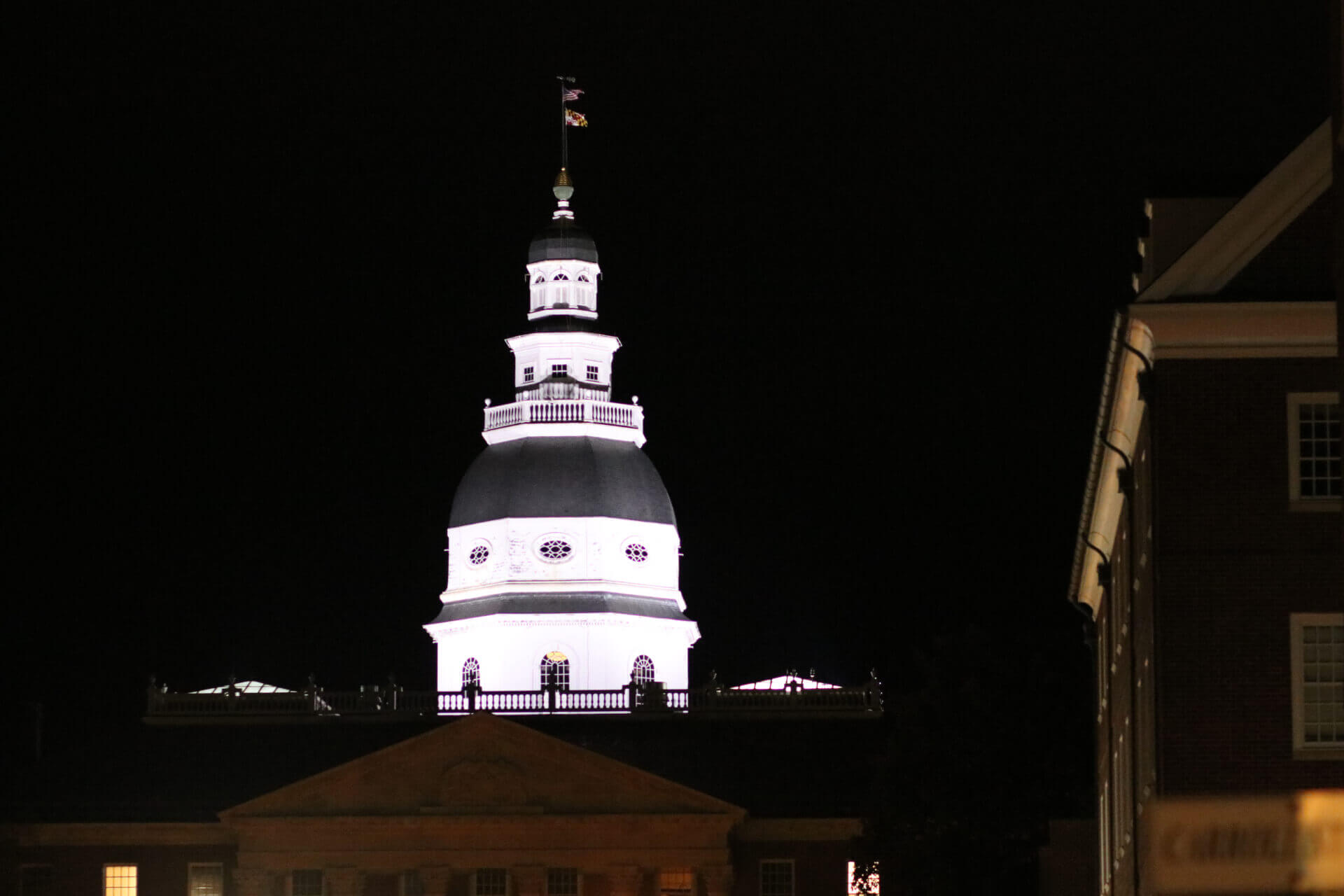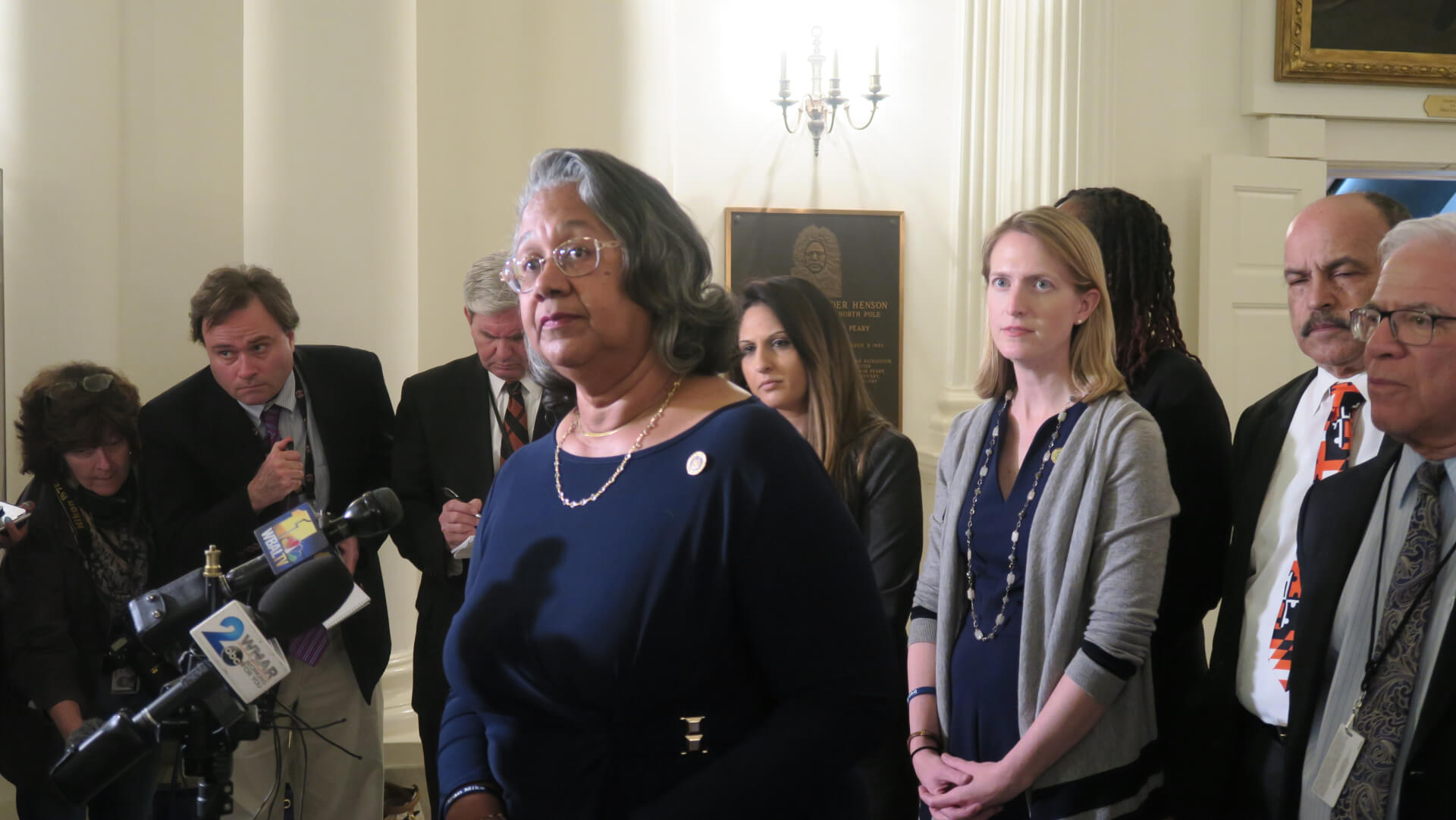Informant Who Fingered Oaks Is ‘Professional Set-Up Artist,’ Defense Says
The FBI undercover informant in the probe of Maryland State Sen. Nathaniel T. Oaks, now under indictment on federal corruption charges, is a “professional set-up artist” who has been paid $1.1 million by the government for work in the last decade, a new court filing states.
The informant, heretofore known in court documents as “Mike Henley,” a Texas businessman wanting to build apartments in Baltimore, was in fact William Myles, who has cooperated with federal investigators since 2007, a filing by Oaks’ defense lawyers states.

Sen. Nathaniel T. Oaks
“Mr. Myles is nothing more than a professional set-up artist whose livelihood is dependent on inducing public officials into corrupt activity,” wrote Oaks’ lawyers.
Lucius T. Outlaw III and Rebecca S. Talbott, federal public defenders, strongly suggest that investigators entrapped Oaks during a months-long series of attempts to bribe him – and that two FBI undercover informants were relentless in their pursuit of the lawmaker because each had a reason to be.
In Myles’s case, the reason was money, they maintain. In the case of the FBI “Confidential Witness” (CW) who introduced Myles to Oaks – a former aide to a county executive referred to as “S-00063808” by the defense – the lawyers claim it was because that person had already pleaded guilty to a federal charge and, as part of a plea agreement, worked undercover in the hope of reducing the sentence.
“There are few incentives more powerful than money and freedom (or the avoidance of the loss of freedom),” Outlaw and Talbott wrote. “Here, the federal government employed both to fuel a multi-year campaign targeting Senator Oaks.”
In 2007, Myles was paid more than $59,000 by the FBI as a confidential source. Those earnings doubled in 2008 to $104,000, and for every year through 2017, his annual pay never dipped below that amount.
All told, he was paid $1.1 million for assisting the FBI between 2007 and 2017.
Myles, who was openly identified in earlier cases elsewhere in the nation in both the press and court papers, first agreed to work for the FBI in Connecticut because of corruption he witnessed there – and to help out his son, who had been arrested on drug charges, according to one 2011 news account. He also worked in a series of sting operations in southwestern Louisiana.
“For the full year (2016) that Mr. Myles’s undercover efforts focused on Senator Oaks and other politicians in Baltimore, the FBI paid Mr. Myles $117,000,” Outlaw and Talbott wrote.
The defense lawyers filed the memorandum Thursday in support of their earlier request for U.S. District Judge Richard D. Bennett to agree, before trial, to explain entrapment to the jury – a motion to which the prosecution vehemently objected in a filing last month.
The defense lawyers maintain in the filing, however, they are not asking Bennett to guarantee that he would give the entrapment instruction to the jury, but rather only if they can prove entrapment during trial.
“The defense has merely requested a ruling that, should the evidence adduced in the defendant’s motion be established at trial, such evidence would warrant an entrapment instruction” to the jury, they wrote.
The Oaks probe dates at least to the early summer of 2014 — almost two years before the lawmaker allegedly took his first bribe from Myles (as “Mike Henley”), in April 2016, and nearly three years before he was first charged with wire fraud, in April 2017.
Oaks was later charged, in November, with fraud and obstruction of justice in a superseding 10-count indictment.
Nine fraud charges are related to allegations that Oaks took $15,300 in a bribery scheme involving Myles (as “Mike Henley”). At that point, Oaks was unaware of the federal investigation; it was only later, when he became aware of the probe, that he agreed to work with investigators.
The single obstruction count stems from allegations that while Oaks was supposed to be cooperating with federal investigators, he tipped off a target in the bail-bonds industry, known only as “Person #1” in court papers, to the existence of a corruption probe.
Oaks has pleaded not guilty to all the charges.
His trial on the fraud charges is scheduled to begin April 16, a week after adjournment of the Maryland General Assembly. His trial on the obstruction charge is scheduled for Aug. 20.
Oaks, a West Baltimore Democrat, filed for his 41st District Senate seat with the Maryland State Board of Elections last Friday. On Monday, Senate President Thomas V. Mike Miller Jr. (D-Calvert) stripped him of his Finance Committee seat, upon recommendation of the Joint Committee on Legislative Ethics.




 Creative Commons Attribution
Creative Commons Attribution